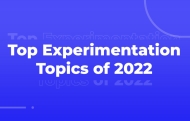
The 10 most talked about experimentation topics on LinkedIn in 2022
2022 was a big year for the experimentation industry.
From whispers of sunsetting Google Optimize to declaring CRO is dead (again), the experimentation influencer community was rife with passionate discussion, educational graphics, and lots of memes.
We poured through hundreds of LinkedIn posts by the top influencers in the last year to get a better understanding of what experimentation topics thought leaders couldn’t stop talking about.
We looked at the most-engaged posts (posts with an exceptionally high number of comments, shares, and likes relative to the individual) from top experimentation influencers and categorized them based on the primary message or topic of discussion. See the full list of A/B Testing influencers you need to follow.
From here, we put together a list of topics that were talked about most often in the community.
Here’s what the top experimentation influencers couldn’t stop talking about on LinkedIn this year.
1. The importance of creating a culture of experimentation
One topic that appeared over and over again in 2022 was the importance of creating a culture of experimentation. It popped up on our newsfeed nearly 20% more often than any other topic, and was spoken about by influencers across the spectrum of experimentation.
Some thought leaders like Manuel De Costa and Chad Sanderson contributed to the discussion with unique takes on what it really means to have a culture of experimentation.
No matter how you slice it however, most experimentation leaders agreed that in order to maximize your efforts and bring about significant change, experimentation needs to be hard-coded into an organization’s DNA.
Ruben De Boer Lead Conversion Manager at Online Dialogue, is particularly passionate about this topic. He often speaks on his LinkedIn about change management, and the importance of creating a culture of experimentation at an organizational level.
There are a lot of challenges to making this happen, but the consensus is it’s absolutely essential to a successful experimentation function.
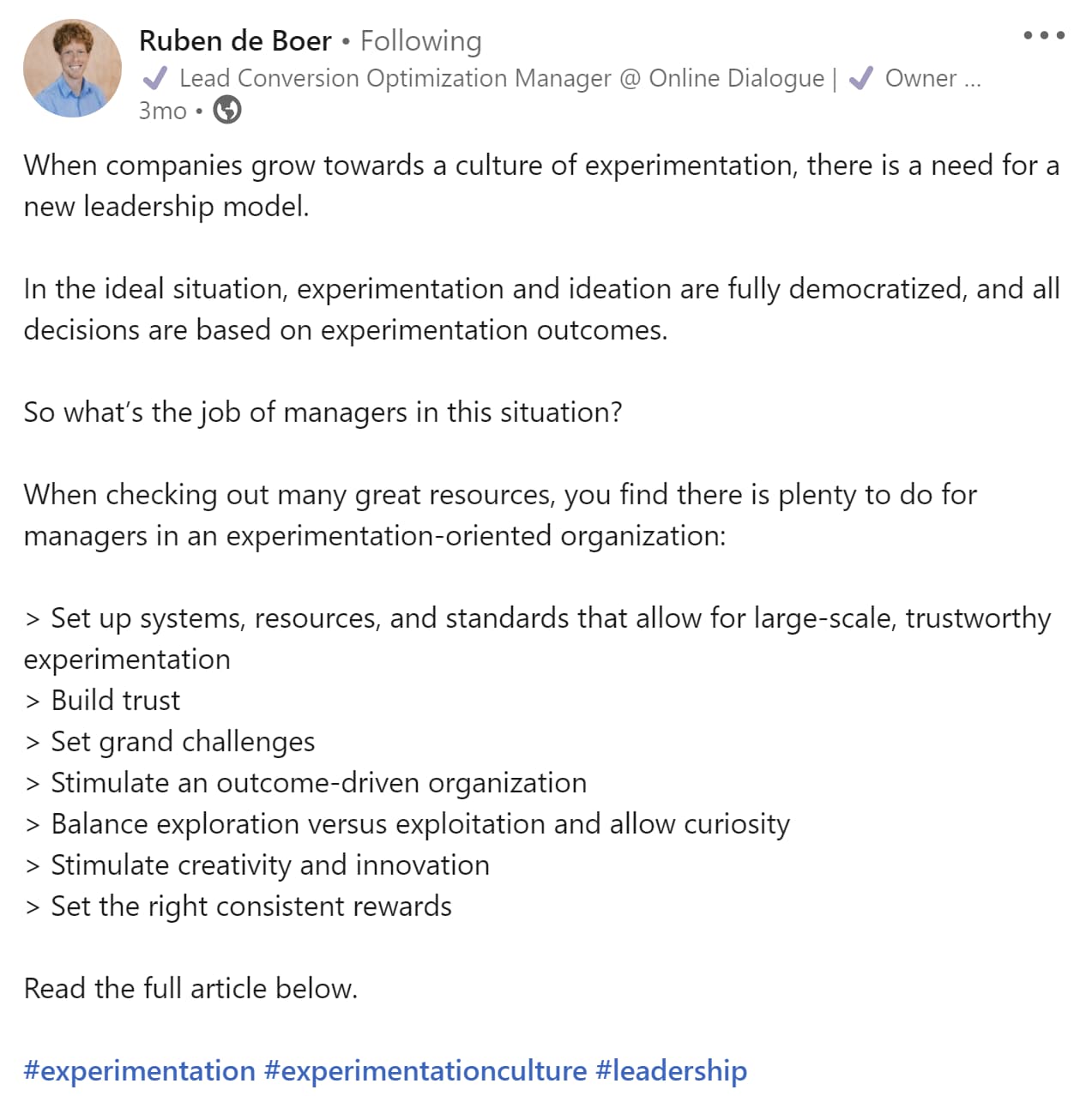
2. How you analyze your data is just as, if not more important, as how you collect it
Close behind creating a culture of experimentation as the most popular topic of 2022 is data analysis. Specifically, how you analyze your data is just as, if not more important, as how you collect it.
The general consensus is we’re misinterpreting p-values, misreading our data, and cherry-picking results to fit the narrative we’re trying to tell, essentially giving in to our personal biases.
The LinkedIn community is doing its part in educating the general population on how to analyze and contextualize their data in order to get meaningful and accurate results. Analytics leaders like Bhavik Patel do so with interesting and insightful graphics, while others like Sina Fak prefer using metaphors and real-world examples.
It doesn’t matter how accurate your data is. If you’re not analyzing your results correctly, you won’t get the results you’re hoping for.
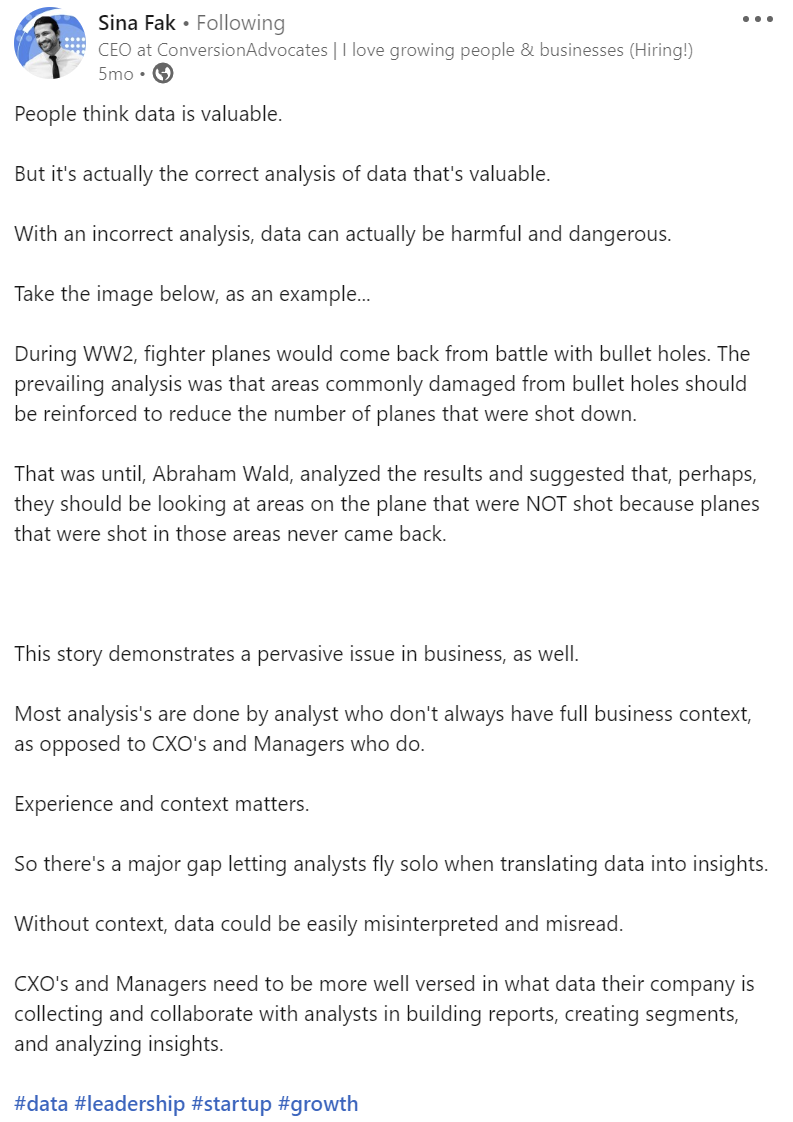
3. The need for cross-functional collaboration and how to build the right team
Because experimentation touches every area of the business and requires a deep set of skills across multiple disciplines, it cannot be done in isolation.
Developers need to be talking to marketers. Marketers need to be talking to data engineers. And everyone needs to be doing this a lot more than they are right now.
Across the board, experimentation experts and leaders called on the need for more cross-functional collaboration and a rethinking of the traditional CRO team from a single individual to a group of experts across multiple departments.
It’s not about having one person on one team running A/B tests. Rather it’s about connecting multiple departments with a unified platform and building a CRO team that extends beyond the confines of a single discipline.
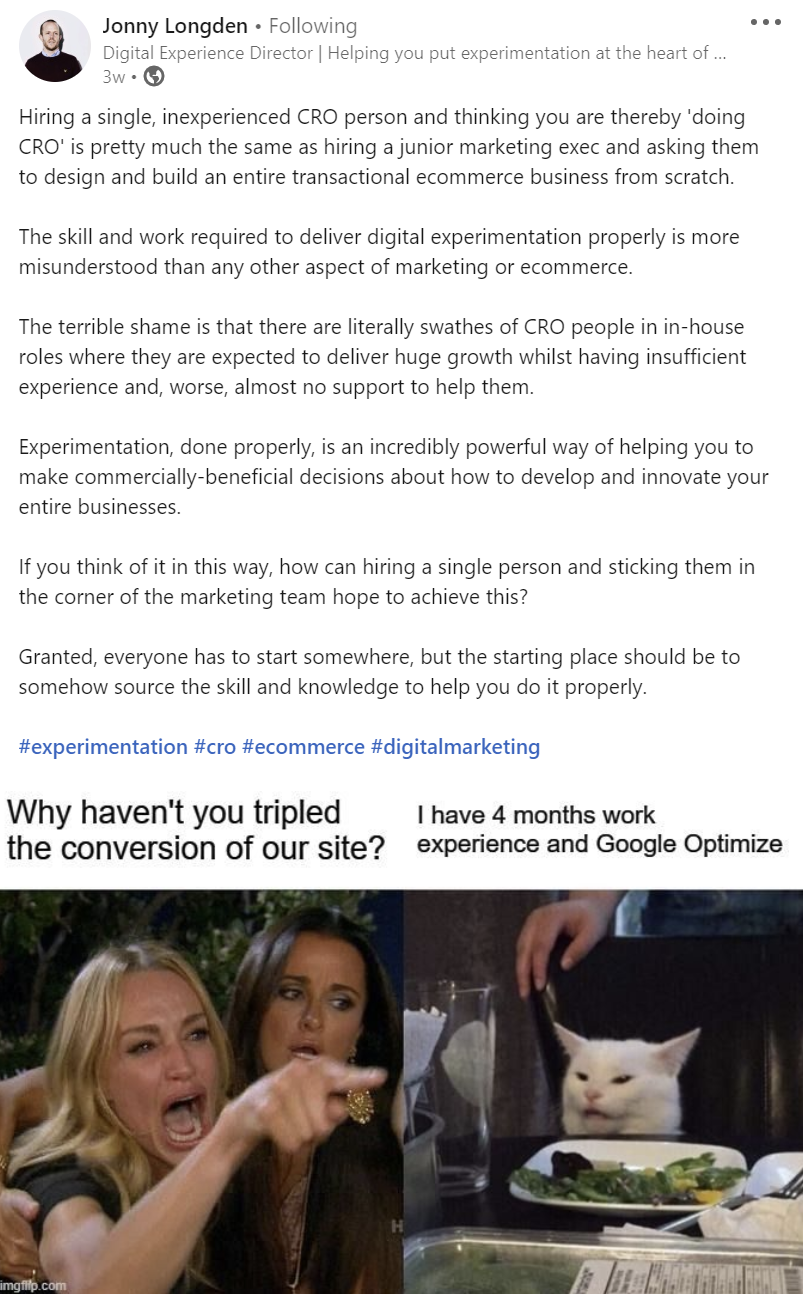
4. Preparing for GA4 and its far reaching effects on the industry
On July 1, 2023, Google will be replacing Universal Analytics with Google Analytics 4 (GA4). With this comes the end of third party cookies and a complete disruption to the way we look at data, both in and out of the platform.
In 2022, the experimentation community focused less on whether or not this change was a positive one and more on how to make the switch as seamless as possible in the coming months.
Thought leaders like Krista Seiden and Dana DiTomaso are leading the charge when it comes to educating the masses on how to use GA4 and convincing them that it’s “really not that bad.”
Consider this a friendly reminder that if you haven’t implemented GA4 on your website or spent some time learning the nuances of it, do it now.
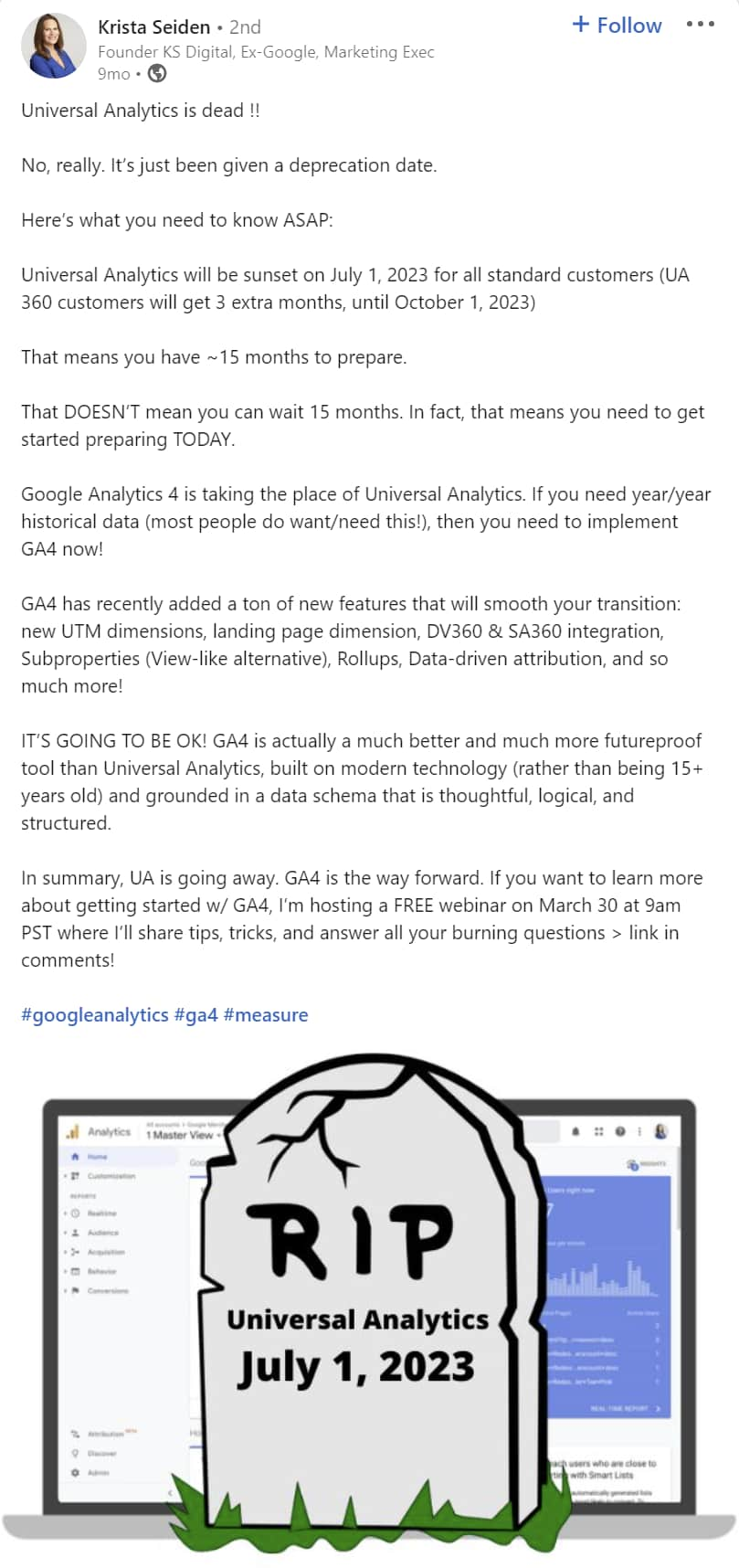
5. A/B testing tools and the potential sunsetting of Google Optimize
Many conversations were had on LinkedIn this year around A/B testing tools, from what makes a good platform to how the current options are falling short.
Of course let’s not forget about the rumored sunsetting of Google Optimize, which may have been brought to everyone’s attention by Kameleoon’s very own, Collin Crowell. While the verdict is still out on that one, many in the industry are speculating as to what could be going on.
Only time will tell the future of this beloved beginner-friendly tool. For now, we’ll keep a close eye on Google Optimize on what their next moves may be.

6. Conversion UX, copy, and design reigns supreme
Copy and design are central elements when it comes to successful experimentation, and the people of LinkedIn love to talk about it.
This year saw the evangelization of message testing and conversion copywriting thanks to experts like Peep Laja and Eden Bidani.
Creating the right user experience was a popular topic as well, with many influencers eager to share case studies of testing UX to improve conversions. In fact, posts with specific case studies and findings saw the highest engagement across the platform.
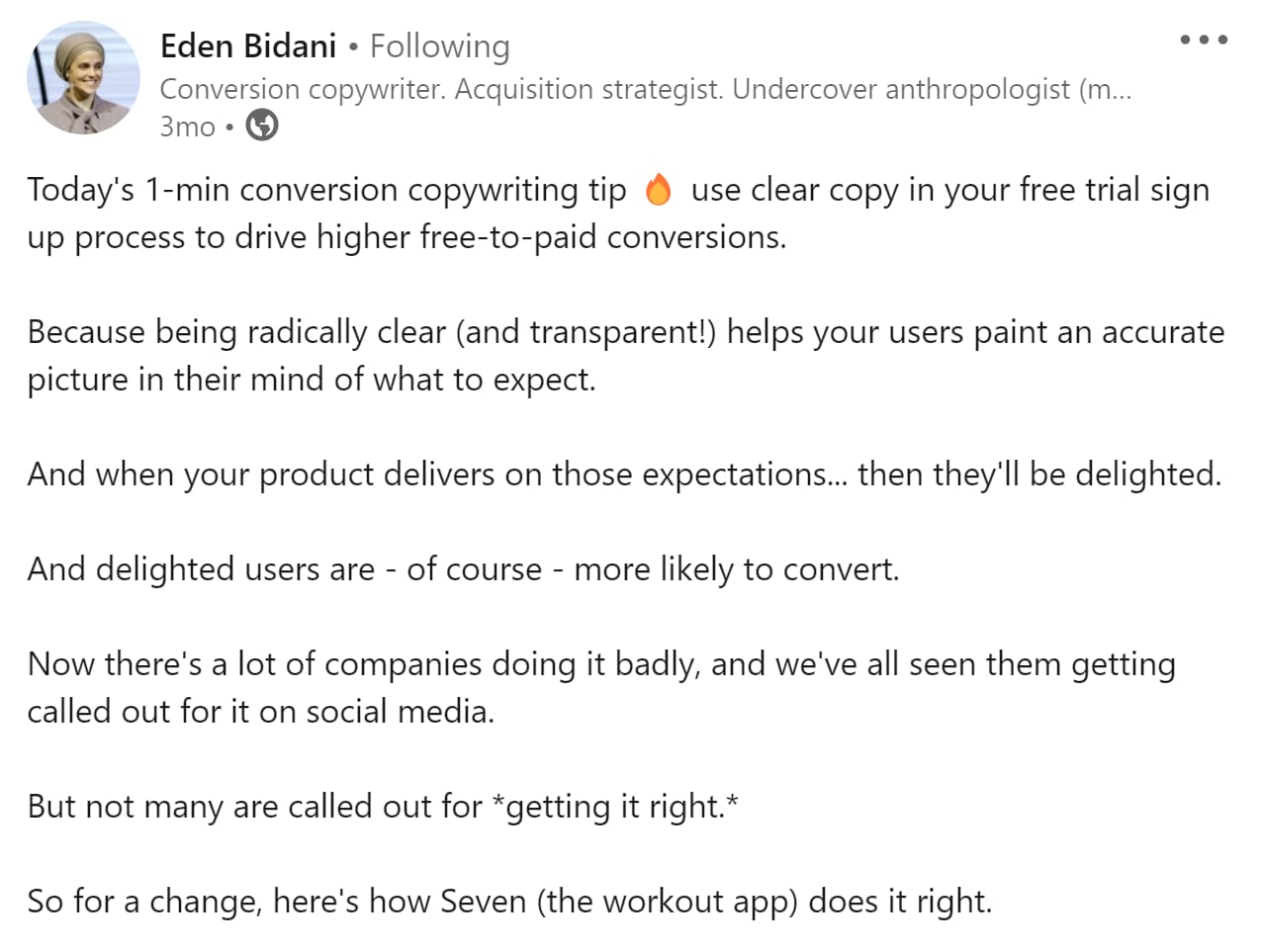
7. SRM, attribution windows, ITP, and education around data accuracy
2022 was also the year everyone called into question the accuracy of their data.
Is your sample size large enough? Are you experiencing sample ratio mismatch (SRM)? Are your tests properly powered? Can you trust your tools?
A/B testing experts like Deborah O’Malley and Ronny Kohavi are vocal on LinkedIn about the dangers of falling into the hands of inaccurate data. They regularly educate experimenters on how to avoid common data accuracy pitfalls and how to ensure the results they’re getting are valid.
Your decisions are only as good as your data, and experimentation leaders are doing their part to educate the masses on when you can (and can’t) trust your results.
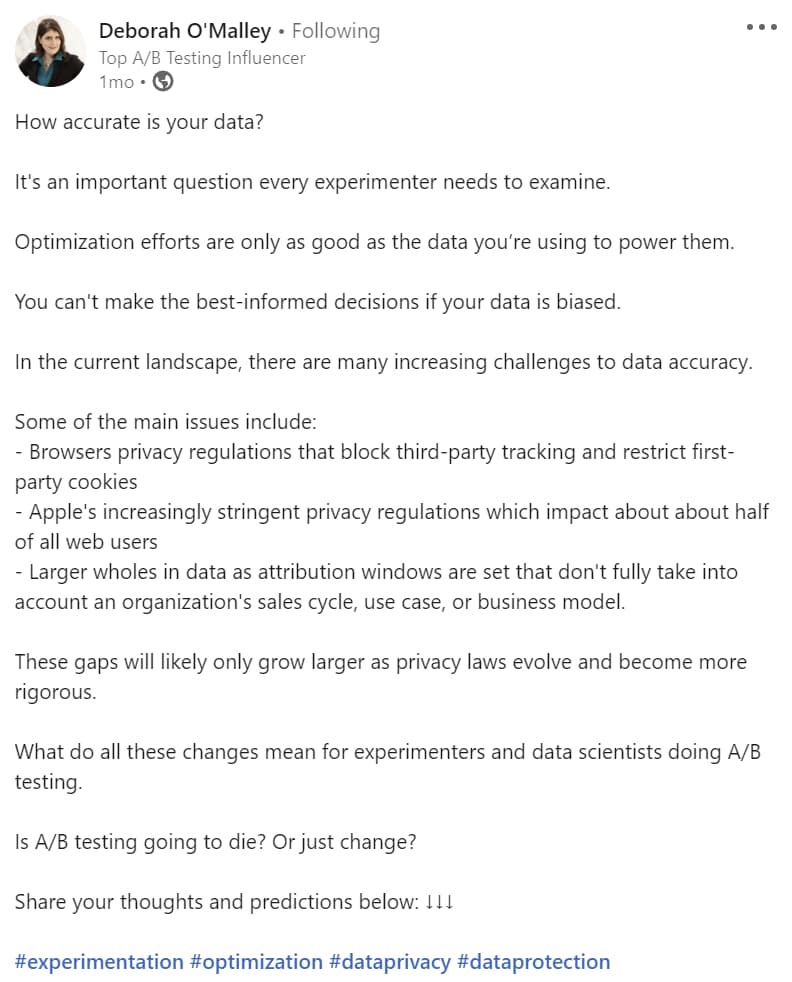
8. Experimentation velocity and the endless debate of going fast or slow
To go fast or slow, that is the question.
Experimentation velocity is one of the industry’s favorite debates. While people didn’t necessarily argue about it on LinkedIn in 2022, they did express their opinions on it often enough. Some heavy hitters like Ben Labay insist that going fast is the only way to win, while others like Manuel De Costa say there’s a better way to approach the fast vs. slow debate.
It was such a hot topic in fact, that Kameleoon even asked four leaders for their take on experimentation velocity this year, including Brian Massey.
In his words…
Maybe 2023 will be the year we settle the debate, once and for all.
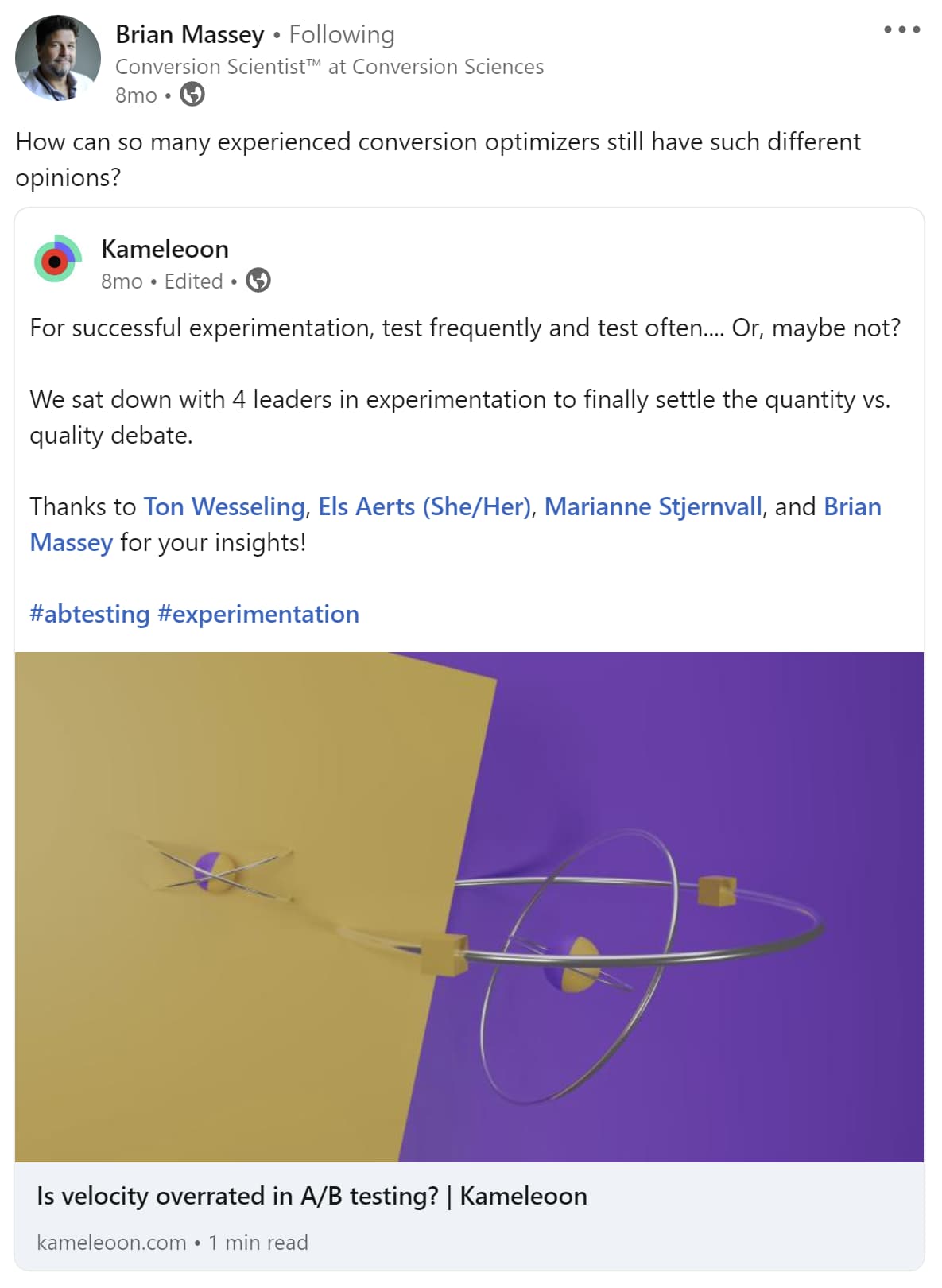
9. CRO is dead (again)
In 2019, Ton Wesseling made the claim that “CRO is dead”. Since then, the phrase has reverberated throughout the CRO community, with many people eager to share their hot take.
This year saw many top influencers continue the conversation, adding their two cents on whether or not “CRO is dead.” While most people insist that CRO is, in fact, not dead, they do agree that CRO as we know it is changing and evolving rapidly.
This year, Ton stated once and for all what he really meant when he made that bold claim so long ago.
This change is an exciting indication of a maturing industry along with the realization that experimentation is so much more than the optimization of a single metric on a single team.
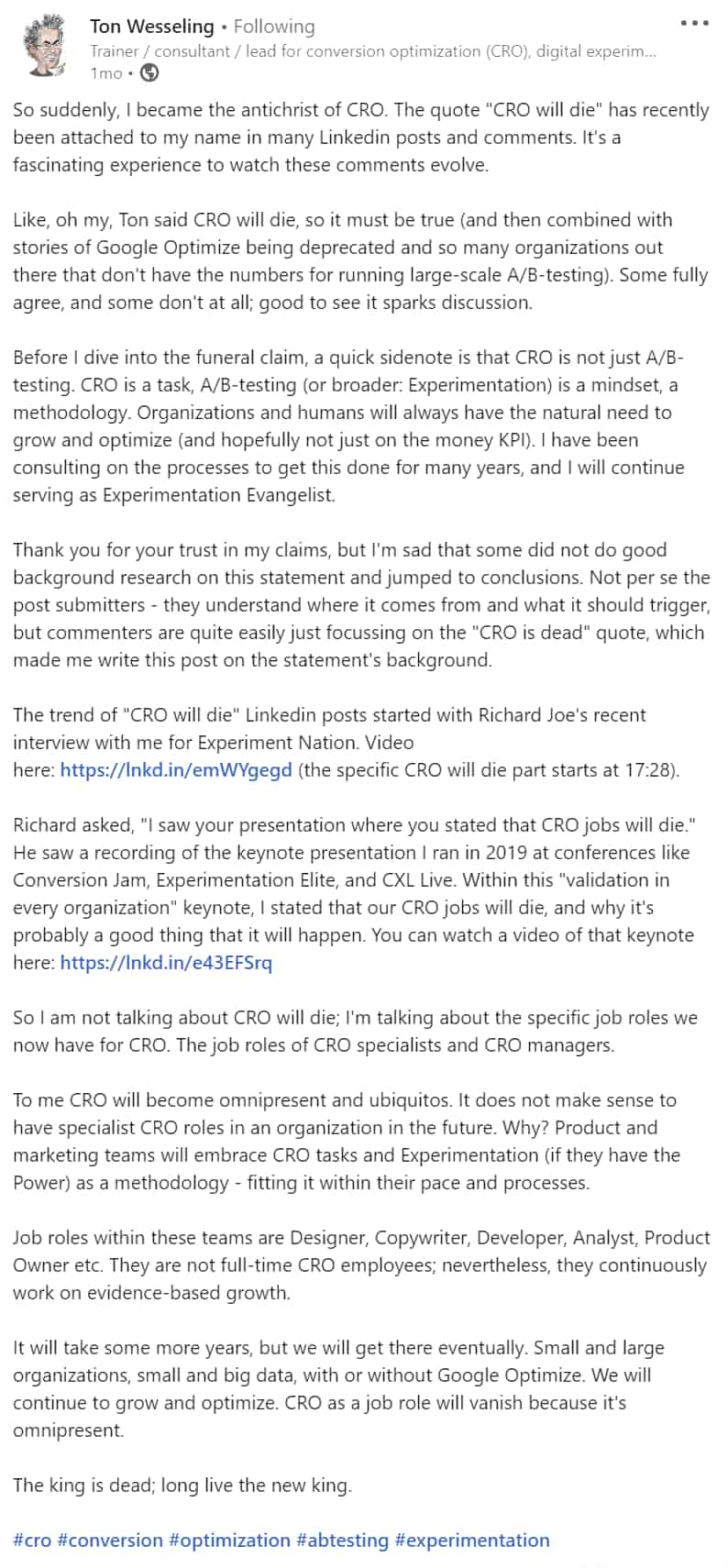
10. Feature management and experimentation is rising in popularity, fast
Feature experimentation is expanding rapidly, and its popularity has skyrocketed across LinkedIn and the experimentation community.
While client-side testing remains the most popular way to approach testing, server-side testing is increasing and the market is reflecting such. Product managers are racing ahead to use experimentation faster than marketers, and this trend is likely to continue for the foreseeable future.
In time, we’re likely to see experimentation on the product side becoming more and more commonplace, and the tools people are using becoming more complex.
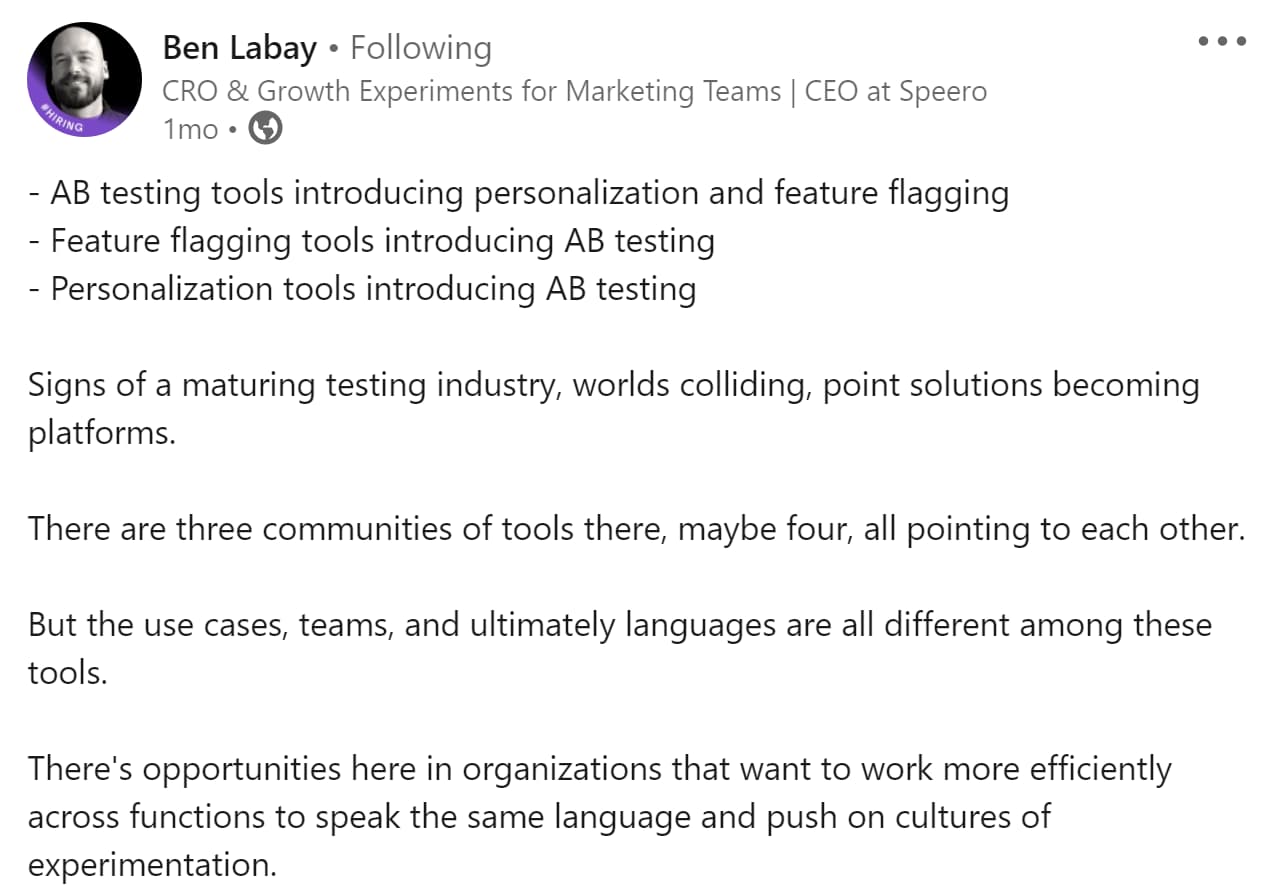
What’s next for experimentation in 2023?
Only time will tell. Until then, we’ll be keeping a close eye on the evolution of the industry and we encourage you to do the same.
A good place to start? Check out the Kameleoon Expert Directory to learn from and follow the experts in the space.

